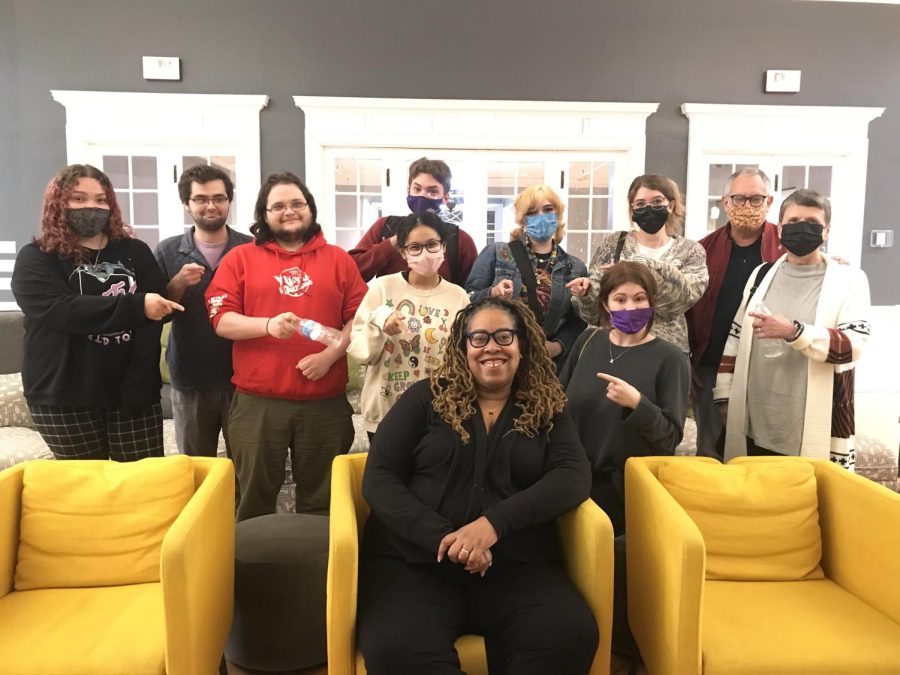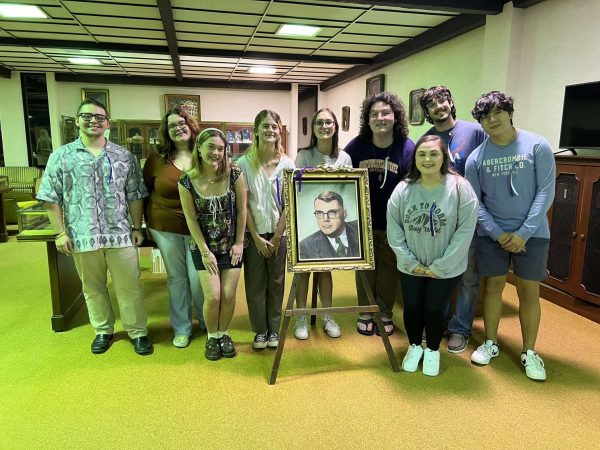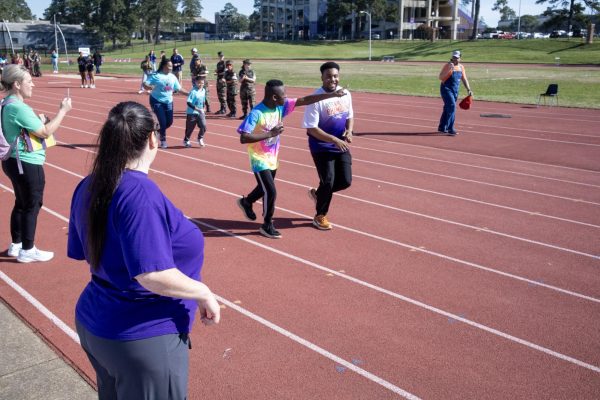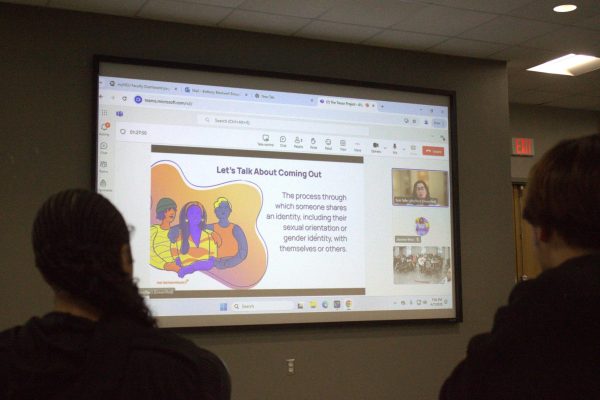Emmy award-winning filmaker opens conversations
Northwestern State University of Louisiana welcomed Emmy award-winning filmmaker Angela Tucker. Tuker directed “Asexual” and produced “Belly of the Beast.”
On Feb. 7, 2022, Melody Gilbert, independent documentary filmmaker and professor in the Department of New Media, Journalism and Communication Arts, held the first viewing of her documentary screening series in Varnado Hall. Aside from just viewing, the audience was able to ask questions to the filmmaker behind the films.
Before the COVID-19 pandemic, the documentary screenings occurred once a month, featuring one filmmaker a semester. Now, Gilbert hopes to continue the screenings while following COVID-19 protocols. Next month, another screening will be held.
For this semester, Northwestern State University of Louisiana welcomed Emmy award-winning filmmaker Angela Tucker. Tucker directed “Asexual” and produced “Belly of the Beast.”
Frances Lemoine, dean of the College of Arts and Sciences, briefly spoke about the importance of the conversations these documentaries offer. She also added that it was exciting to have a special guest coming to campus and starting the conversations.
The first documentary screened was “Asexual,” which follows the start of a community only one percent of the population may be a part of. It introduces the story of David Jay, who became the face of asexuality, as he finds others like him and follows his own journey of coming to terms with his sexuality.
One of the first questions asked by the audience pertained to the length of time it took to produce this film.
“The film came out in 2011 and it took about three years to make,” Tucker said.
Tucker felt that the length of time allowed for a profound exploration of asexuality that had never been done before.
“I think David’s life changed so much that we got a deeper understanding of asexuality,” Tucker said.
Anna Duplantis, junior communications major, came out to view the screenings. Duplantis felt that the documentary covered an important topic and a perspective not explored before.
“‘Asexual’ gave a new perspective that I never thought of because, being part of that community, I never thought that there was this stigma associated with asexuality, and watching the film made me more sympathetic,” Duplantis said.
Duplantis, like others around the room, thought that the film was ahead of its time.
For Chris Louque, freshman theater major, the film exceeded his expectations.
“I thought this was a really cool look into a community that I didn’t know a lot about,” Louque said.
The next screening produced by Tucker was titled “Belly of the Beast.” Her award-winning film shows the injustices that happen behind bars, as women in a California detention center were forced into sterilization.
This film covers 10 years of the story of Kelly Dillon, from the time that she recognized something had been done to her, to testifying for a bill that would stop sterilizations.
When the film finished, Tucker explained that she was interested in the sterilizations happening to marginalized women in the south and wanted to make a film about it. When she heard Kelly Dillon’s responses in the interview, she felt that this was the perfect profound story that needed to be known.
“It was a really challenging movie to make,” Tucker said.
She also shared with the audience why this film personally affected her. Tucker had recently undergone a consensual hysterectomy which made it emotionally hard to process.
As she formed a relationship with Kelly Dillon she was able to heal.
“My ability to be really open with her during the making of this film helped me process a lot of the things that I was going through,” Tucker said. “Even though it was challenging I feel like I ended up so much stronger having made the film.”
Hannah Gurtner, freshman computer information systems major, felt that the film provided vital information that needs to be more widespread.
“As a woman, it causes so much hurt and anger in my heart to see that they did not have a choice,” Gurtner said.
She also added that coming to these viewings can be beneficial to anyone.
“It didn’t feel like it was just for communications majors. It was just watching something artistic with meaning,” Gurtner said.
Edit for Clarification 2/14
The first line was edited to indicate the location of the event.

Lia Portillo is a communication major in her last year at NSU. She has worked for The Current Sauce since her freshman year and has loved writing stories...



























Melody • Feb 13, 2022 at 2:26 pm
Nice article! The reporter did a good job covering the event and getting good information from Angela Tucker. Not all journalists are able to get people to open up to them, and Lia got some good quotes and personal info from Angela about her films and about her personal life. Congrats!
Abed • Feb 10, 2022 at 12:29 pm
What a great interview